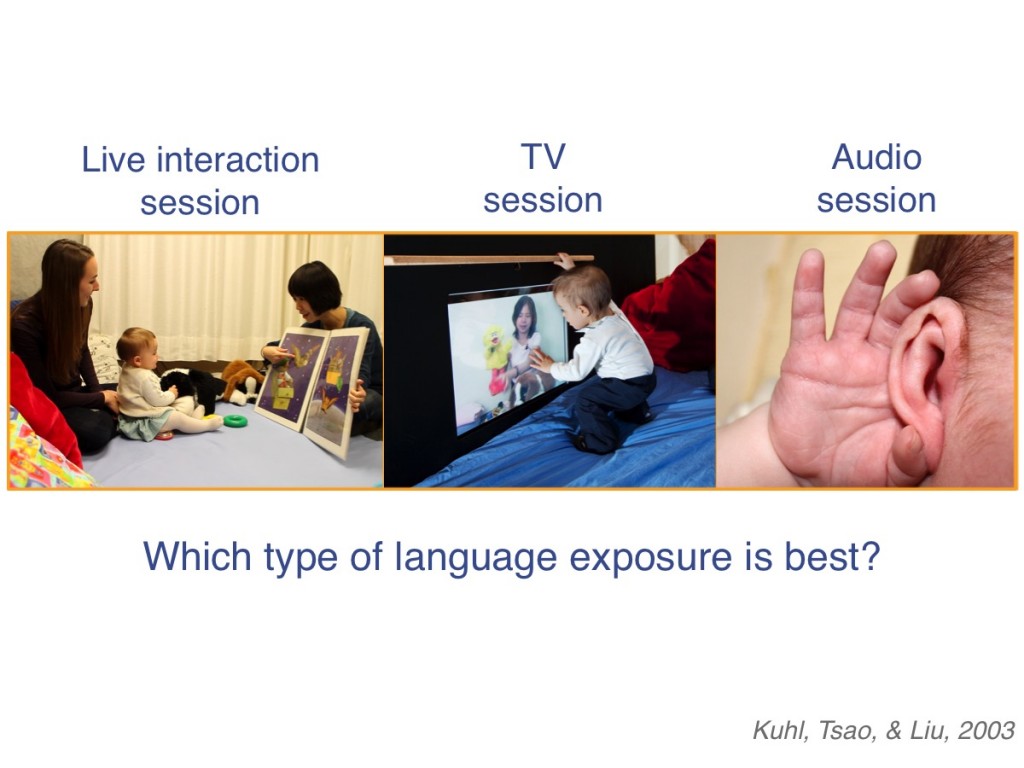
We know that infants learn language from many different sources, not just their parents. For example, infants hear language from television, or from the radio when they are riding in the car. Does the source of language matter?
To study this question, researchers asked whether infants from English speaking households can learn the sounds of Mandarin Chinese. Nine-month-old Seattle infants were divided into three groups. The first group played with and heard books read by a native Mandarin speaker. The second group of infants watched the same native Mandarin speaker playing with toys and reading books on TV. The third group listened to an audio recording of the same native Mandarin speaker. Each group of infants visited the laboratory 12 times, and each visit was 25 minutes long. Infants in all three groups heard a total of about six hours of Mandarin Chinese. You can watch a video of each kind of play session on the next page of the module.
-
- Categorization
- grouping together the same sounds, and distinguishing them from other sounds
- Phoneme
- the smallest unit of speech (a sound)
- Sensitive period
- a time in development when the brain is especially ready to learn a skill
- Speech perception
- listening to speech
- Speech production
- speaking
- Statistical learning
- computing how likely it is that certain events (in this case sounds or syllables) occur compared to others